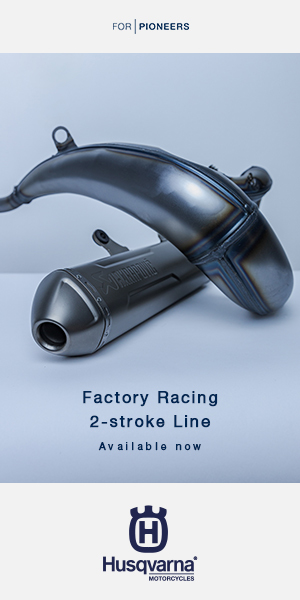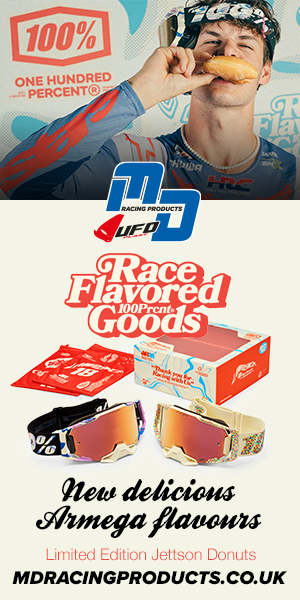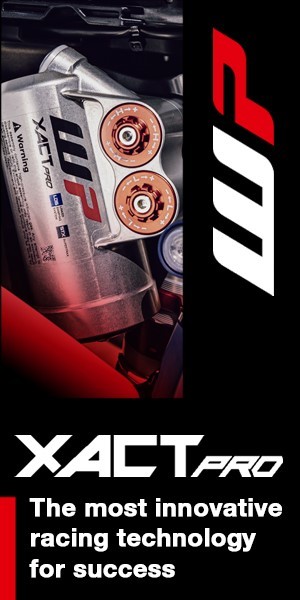Joel Robert interview - Thanks Champ
Posted on January 13, 2021
Flicking through some old files on the weekend, I found this pretty cool interview with Joel Robert, the six-time World 250 motocross champion. Robert was not only a great champion, who held the record for most GP win and World championships until Stefan Everts came along and broke all his records, he was the godfather of Belgian motocross.
Robert the 1964, 1968, 1969, 1970, 1971 and 1972 World champion was as much a character as he was a racer and motocross folk-law is full of his wild stories. Known for his wild drinking, smoking and womanizing, the Belgian legend was everything you could hope for if you like that type of sportsman, and believe me, most loved the tough Belgian.
I remember doing this interview at a race in Belgium, as Robert had hardly ever ventured out of his country anymore for races and on this occasion, it was actually in the beer tent at a Belgian Grand Prix.
Always happy to have a chat about the old days, Robert gave me a little insight into his career. I loved every minute of it and could have sat there for hours, but Mr. Robert was enjoying the day with friends, as he has done his whole life.
Now with his passing today, I wanted to share it again.
MXLarge: Joel, when did you start racing?
Robert: Because we couldn’t race in Belgium before turning 16 years old, I started as soon as possible, back in 1959. I had a Zundap machine, it was a street bike, but we converted it into a motocross bike. I won the Belgium junior championship in my first year and then I bought a Greeves machine, which was the best 250 at the time. I was 17 when I got it.
MXLarge: How quickly did it go for you to get the GPs?
Robert: I started doing Belgian Internationals and a couple of years later some GPs. It was in 1962 that I began my Grand Prix career. I did five or six round and my best results was a sixth in Sweden. The following year I had the Greeves again and my best was a fifth place, at that time many people thought I could be a champion.
MXLarge: I understand money problems in the Robert family almost cut your career shot, but fortunately, Torsten Hallman turned down a deal to race the CZ preferring to stay with Husqvarna, considered by many as the best machine. After Hallman refused CZ contacted you were asked to visit the factory in Strakonice, Czech Republic. A contract was signed and a new era in Grand Prix motocross began.
Robert: At the end of 1963, my father had no money for a new bike, so the CZ importer in Belgium offered me a bike for the 64 season. I won the first two pre-season races in Belgium and beat Torsten (Hallman), who was the World champion. In the first GP in Spain I finished sixth or seventh, then on the 26th of April, in 1964 I won my first Grand Prix. I also won the next Grand Prix, and won four in a row, and came second in Luxembourg, third in Italy, before winning four in a row again. It was my first full season in Grand Prix’s.”
MXlarge: I have heard your approach to training being borderline ridiculous. Celebration of your 1964 championship might have cost you more success and you didn’t win the 250 championship in 1965, 66 or 67.
Robert: I remember that sometime, it was easy for me when I raced. I liked the rain and the mud, and sometimes when we rode muddy tracks, I would be a minute in front. I didn’t know I could win so easily and that was a problem the years after. I thought I could do it without working for it. I went the next three years thinking I could do it easy, so I wasn’t well prepared. I finished second to Torsten (Hallman) twice and second to Victor Arbekov and then won five in a row. At that time, I was enjoying life. I remember one race in East Germany, or somewhere like that. I was walking around at 3am in the morning of the race very drunk. They filled me up with coffee at about 6am and I went and won the race. I was just having fun then, but not at the Grand Prix’s, then it was all work.
MXLarge: Edison Dye came to Europe in 1967 and was recruiting riders to travel to America at the end of that year. You, Torsten Hallman, Dave Bicker and Roger De Coster went. De Coster recalled that he earnt $240 per race, which doesn’t seem like much now, but was a lot back in the 1960s.
Robert: I did the Trans-AMA in America for four or five years. We went in 1967, we bought a second-hand van and went travelling all around the states and it was a lot of fun. We really controlled the racing and won a lot until a rider called Bob Hannah came along and we started losing.”
MXLarge: That old style of racing Grand Prix fitted right into your charming character, travelling with friends and having fun.
Robert: We could travel together we could do three or four GPs in a month and in that time not go home. I was a bad character, if somebody told me to do something, I would not listen. I would do what I wanted, and that sometimes meant having a good time on a Friday or Saturday night. Now, in this era, you have to do what you are told.













